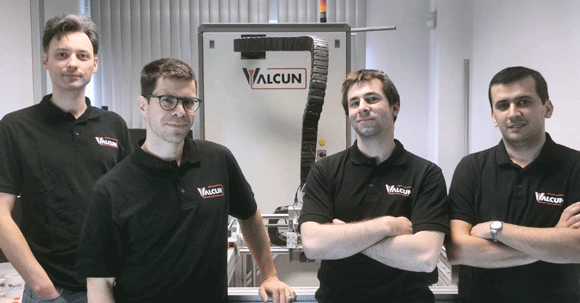ValCUN raises €1.5 million to further develop its novel Additive Manufacturing technology
March 23, 2021

ValCUN, a developer of a novel metal Additive Manufacturing process based in Ghent, Belgium, has raised €1.5 million in capital to further develop its patented technology.
In contrast to many existing AM technologies, ValCUN is reported to not use lasers or metal powder in its process. The company explains that a more efficient heat input results in considerable energy savings, adding that shape requirements for the filler material are non-existent. As a result, wire, granulates, residual flows, and even recycled metal or previously-printed parts are suitable as raw material.
Through its innovative process, the startup aims at making metal AM economically competitive for all sectors of the manufacturing industry. The patent application for the technology – approved late 2020 – and the demonstration parts it has produced are reported to have convinced the investors.
“ValCUN has touched me with its passion, people and technology: a team with ambition and a drive for innovation, and a potentially groundbreaking metal 3D print technology,” stated Piet D’Haeyer, a private investor in the company. Other investors are reported to include government support agencies PMV and VLAIO in Flanders, as well as various business angels.
“The COVID-19 pandemic made it challenging to raise capital, but the approval for additional financing will allow us to further expand our activities,” added Jonas Galle, CEO and co-founder.
ValCUN already has several pilot projects in the pipeline. The company’s prototype AM machine is to be fine-tuned to meet the specific needs of target applications, such as heat exchangers – crucial for battery developments – and other near-net-shape products. The aim of which is to put ValCUN in prime position as a supplier for the growing electric vehicles market.
The increasing need for higher energy density and performance has a major impact on the need for cooling of components. The company has also identified the potential in IT infrastructure, where there is a growing need for heat exchangers for data centres.
“We didn’t take the easy road, developing a new technology and new hardware simultaneously – a combination that many investors are opposed to,” commented Jan de Pauw, co-founder. “We are steadily pursuing our sky-high ambitions by thinking globally and we see potential at renowned companies such as Google and Tesla. From the outset, we have positioned ourselves as an international company. To implement this vision, we are currently looking for business/customer development and engineering talents.”
















